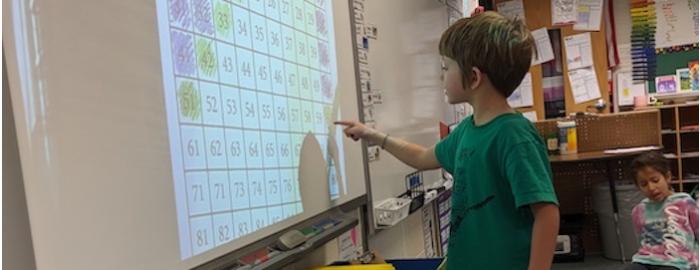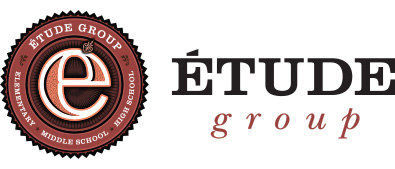
If there’s one thing that’s become more important than ever in education over the last month, it’s flexibility. Teachers have initiated online learning on the fly, in response to the COVID-19 pandemic, and students and parents have risen to the challenge.
Flexibility is what Stanford University’s Mindset Mathematics Workshop is all about, and two Etude teachers participated in a conference in March to sharpen their skills and learn a new way of teaching math.
Mindset Math is based on Stanford’s “youcubed math,” which is an innovative method of presenting math to students that encourages creativity and inspiration to unlock kids’ abilities and overcome traditional trepidation about who is and isn’t able to grasp math concepts.
Kara Pasche and Rachel Pekarek, who both teach second- and third-grade multiage, came back to Sheboygan after the workshop with a new outlook on teaching math and are already using the principles they learned.
Mindset Mathematics is a new way of thinking about math that encourages students to think about what they’re trying to solve and to be open to different ways of getting there. It differs from what their parents learned because it doesn’t involve learning one way to solve a problem and one correct answer only.
Instead, it promotes six concepts that dovetail perfectly with Etude’s teaching philosophy:
- Brains grow and change
- Struggle leads to brain growth
- Teach with a growth mindset
- Make connections with others
- Flexibility and depth are more important than speed
- Collaboration is vital
Mindset Mathematics “is the belief that anyone is capable of achieving high levels in math,” Pasche said. “It promotes strong visuals and multiple representations of math ideas.”
Pekarek said a major takeaway for her was the idea that math lessons can be more discussion-based and student-led than traditional education dictates.
“Students should be able to feel free to discuss and show how they got the answer they did, while promoting discussion and other strategies from other students,” she said. “Adults or parents often unknowingly transfer their attitude about math onto their children, therefore kids get these preconceived notions about math before they even attempt it.”
Mindset Math wants to change that, and Etude was already on its way – collaboration and connection have always been part of the culture, so the concepts aren’t difficult to incorporate in math class.
To bring what she learned at the workshop to life, Pasche has added the idea of the “skeptic” to her regular program, which includes “Mindset Monday” and centers on youcubed lessons.
“As a student explains his or her thinking, the rest of the class is encouraged to be skeptical and ask questions to promote the sharer fully explaining his or her thinking and why it works,” she said. “I also added the word “conjecture” to my number talks. I explained to the kids that it is a math idea, and ideas can change when you get more information. This has helped some students who are concerned about being right and not wanting to make mistakes.”
Pekarek said she gains a lot from attending workshops like Mindset Mathematics, because they promote understanding among educators and give her a network of support.
“The passion and excitement that came from other educators is contagious,” she said. “I always feel excited to take the ideas that I have learned back to our staff, because our staff is very open to hearing and learning new ideas.”
The workshop was made possible by funds from a DPI expansion grant, said Susan Griffiths, principal of Etude Elementary School.
“The DPI Expansion Grant has provided funds for the elementary school to continue teacher training and school improvement,” she said. “Kara and Rachel have not only implemented what they learned at Stanford, but have also shared their learning with the staff. This positively impacts learning throughout the school.”

